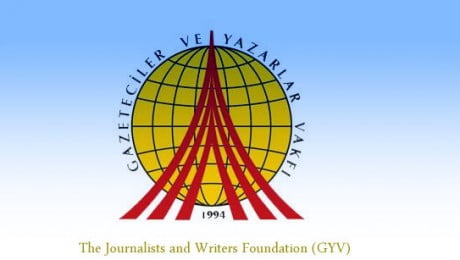Keyword: Terrorism

Fethullah Gulen: Muslims, we have to critically review our understanding of Islam
Words fall short to truly express my deep sadness and revolt in the face of the carnage perpetrated by terrorist groups such as the so-called ISIS. I share a profound frustration with a billion and a half Muslims around the world at the fact that such groups commit terror while dressing up their perverted ideologies as religion.

Fethullah Gülen on Acts of Terrorism – in light of Paris and Beirut
Gülen’s position on violent extremism is based on a comprehensive, thorough and robust understanding and reading of the spirit and teachings of Islam’s primary sources, the Qur’an and Sunna – the same foundations on which its core teachings are based.

GYV contributes to correct perception of Islam
Journalists and Writers Foundation (GYV) Vice President Hüseyin Hurmalı told the Zaman daily on Sunday that the GYV, of which prominent Islamic scholar Fethullah Gülen is the honorary president, serves an important global mission to help people understand Islam at a time when it is increasingly associated with radical Islamist organizations such as the Islamic State in Iraq and the Levant (ISIL) and al-Qaeda.

Turkish Islamic scholar Fethullah Gülen condemns Paris attacks in strongest terms
In a strongly worded statement, Turkish Islamic scholar Fethullah Gülen has condemned the terrorist attacks in Paris that claimed the lives of over 100 people, calling everyone to join in rejecting the terrorism “without ifs and without buts.”

Violent Extremism
Violent extremism undertaken in the name of religion threatens the basic premises on which dialogue operates, as well as the conditions within which it can grow. In understanding the causes of this phenomenon, with a view ultimately to tackling them, we must first consider the ways that we communicate about and around the subject.

Fethullah Gulen writes in WSJ: Muslims Must Combat the Extremist Cancer
It isn’t fair to blame Islam for the atrocities of violent radicals. But when terrorists claim the Muslim mantle, then they bear this identity, if only nominally. Thus members of the faith must do whatever possible to prevent this cancer from metastasizing in our communities. If we don’t, we’ll be partly responsible for the smeared image of our faith.

GYV condemns Suruç attack, calls for measures against terror threats
The Journalists and Writers Foundation (GYV) has strongly condemned what it called “a nefarious attack” near the Syrian border that killed at least 31 people, calling on authorities to take urgent steps to prevent such terrorist attacks.

A Hizmet Approach to Rooting out Violent Extremism
The Centre for Hizmet Studies is delighted to launch its latest report titled ‘A Hizmet Approach to Rooting out Violent Extremism.’ This is the second publication in the ‘thought and practice’ series, the first being ‘Gulen on Dialogue’. The series aims both to contribute to a more nuanced understanding of Hizmet’s thought ad praxis on significant contemporary issues such as tackling violent extremism, the Kurdish issue or political Islam.

Imam Wahy-ud Deen Shareef: What we see in ISIL may be fire, but it is not illumination
American-born Imam Wahy-ud Deen Shareef, 64, the imam of Masjid Waarith ud Deen in Irvington, New Jersey, has said, “What the American Muslims see in the Islamic State in Iraq and the Levant (ISIL) may be fire, but it is not illumination.”

Kurdish theologian: Gülen’s ideas best antidote to ISIL
Jafar Gwani, an Islamic theologian based in the Kurdistan region of northern Iraq, has said the ideas of Fethullah Gülen, an Islamic preacher who lives in self-imposed exile in the US, are the best antidote in the fight against the ideology of the Islamic State in Iraq and the Levant (ISIL).

Professor Sarıtoprak: ‘ISIS uses eschatological themes extensively for their ideology’
“ISIS [the Islamic State in Iraq and al-Sham] is far from following ‘Prophetic methodology.’ ISIS preaches hatred and contempt for human life. Nowhere are these parts of anything that could be remotely described as the Prophetic methodology, and their killings and brutal treatment of other Muslims, Christian, Jews and others show that their methods are truly illegitimate,” according to Professor Zeki Sarıtoprak.

Emerging context: Globalised world and Islam
In our previous article, titled “How acts of ISIL, extremists have been securitizing ordinary Muslims,” we examined the impact of the emergence of the Islamic State in Iraq and the Levant (ISIL) on Muslim minorities in the West by analyzing some recent tragic events that occurred in Canada and the US.




















